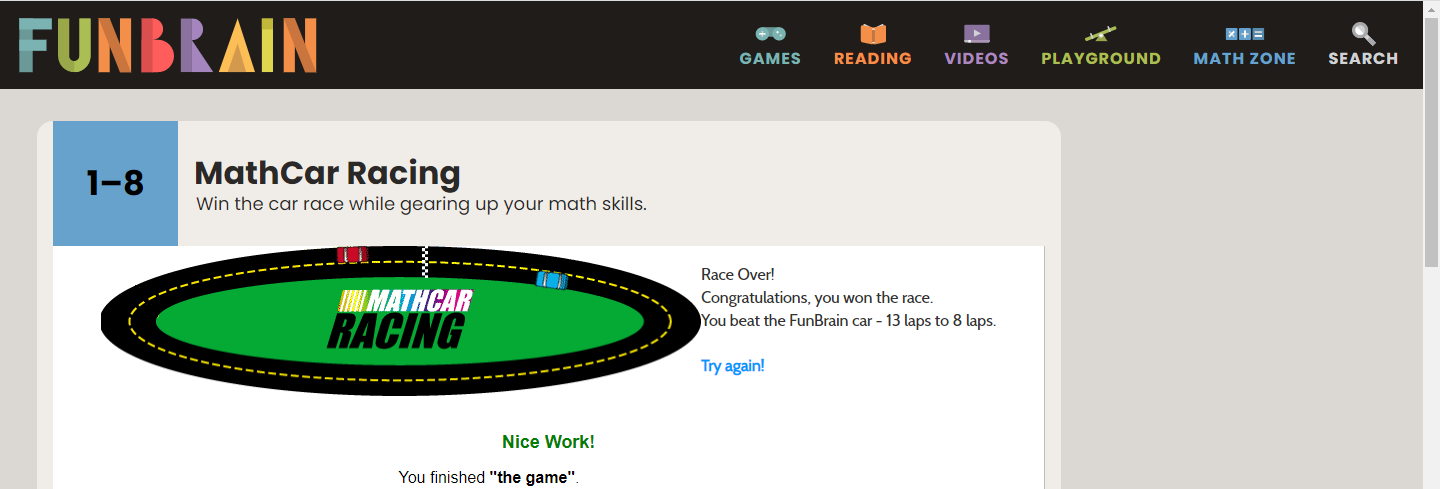What are some of the aspects that are inherent to fostering an educational mindset? Education assumes at its core that the audiences or parties partaking in the education want to obtain some form of information from the sources. There needs to be a sense of inherent motivation intrinsically sourced in the learners before they actually obtain something useful that they carry with them.
If not handled with extreme care, making an educational game on a divisive socio-political conflict would likely have the same effect as people blatantly arguing with each other in a room. Solidified viewpoints from the learning audience will lead them to ignore or infallibly challenge non-agreeing stances. Alternatively, a learner that is enamored with an instructor or teachable topic will likely find themselves completely engaged with the taught material learning things that might not even be originally intended by the instructors. Although I aimed to learn much about different aspects of the time loop genre in our devoted class lecture, I also found myself taking notes on how to teach a concept in an engaging way through performance and audience engagement. Similarly, a game that might aim to teach me about the incredibly pervasive issue of climate change may succeed in getting me to be more aware of it, but if the accompanying soundtrack to the game is incredible, I might find more of the game’s educational purpose in pushing me to learn how to compose similarly sounding audio tracks.
I don’t mean to make this post a conversation on the motivating factors behind playing games, as that is a broad topic that does not just pertain to educational games, but I want to discuss how some of these motivational concepts find niches in allowing education to properly be conveyed.
Challenge was what inspired me to MathCar Racing Multiple times on the hard difficulty. I did not initially understand how the score values were chosen, which led to the sour result of me losing all the high point values and losing the race by a landslide. The drive to improve in this game almost certainly did not teach me time table addition/subtraction and multiplication/division. It did in a brief moment, though, teach me about planning ahead for events outside of my control. I was taught from my first to second playthrough to prepare multiple alternate routes or progression and how to choose options from a limited pool of resources being competerd over.
Embedded Design strategies, as discussed by Kauffman and Flanagan in “A Psychologically ‘Embedded’ Approach to Designing Games for Prosocial Causes” detail much of the approached to almost subliminally education an audience by not making the learning goals apparent and having them blend with other aspects of the game. Some of the large risks associated with this technique involve having the audience completely miss the teaching goals.
What role can inspiration find in teaching educational material? Is it a good approach to build up loyalty through pure enjoyment of a game before asking for them to learn something? I would say there it would work, as so many people who choose to work in certain (especially creative) fields wish to do so from an experience they had earlier on driving them to make something similar.
No amount of information will be absorbed by a learner audience that is adamant towards not gleaning anything. Likewise, all sorts of things can be learned from educational material, including concepts indirectly related to the main educational goal of the material, if it is interesting enough to the learner audience.

CVGS 2021
Education is in the Mind of the Beholder?


© 2025 CVGS. All Rights Reserved
Your point that audiences might completely miss the point of an educational game while playing is a compelling argument. I wonder, then, if a major issue for educational games is the way in which “win-states” are presented. If you are told that winning the race is most important, other aspects of the game that are more educational may be overlooked by a player. Nonetheless, hitting your player over the head with educational content could detract from gameplay to the point where it ceases to be a game at all. I personally did not feel that Match Soccer felt like a game because you always scored a goal no matter how you timed the kick so long as the math answer was correct. In short, there are some serious questions about how to balance gameplay and educational demands in these games to present an engaging, and informative experience.